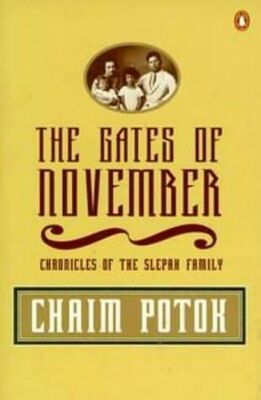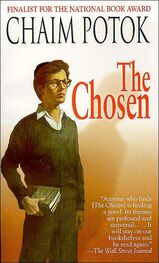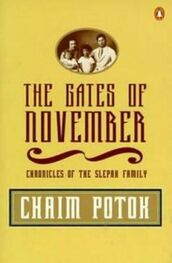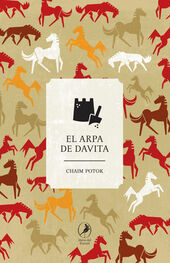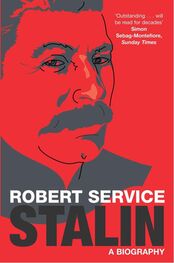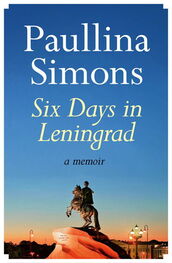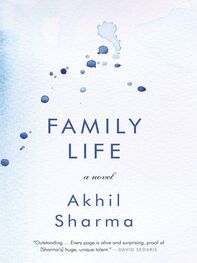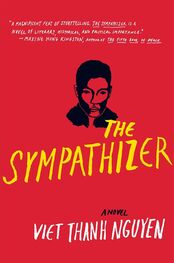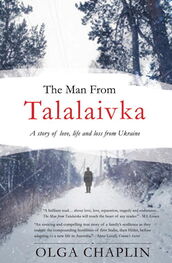The woman hugged Volodya. She asked about Masha and the boys. They sat there talking. She was a large woman, the same height as Volodya but wider in build, her eyes deep blue, her blond hair going gray. An emotional person, she gave voice easily to her heart. She asked, “Why did you leave? You were born here; you have good friends here.”
Volodya said, “You know, it was because of the anti-Semitism. We wanted a good future.”
“But now the anti-Semitism is going down.”
“It’s like waves. Soon it will go up.”
“But it’s difficult to leave the place where one is born. How could you tear up your roots?” she asked.
To which Volodya responded, “Sometimes that’s necessary.”
He stayed two hours. The next day, he returned to Israel.
Two and a half years later, in June 1991, he was back in Moscow to deliver a talk at another conference. He found the city dirtier than ever, but otherwise the same, save for the foreign stores in its center: boutiques, French perfume shops, and a McDonald’s in Pushkin Square, where, in December 1965, some two hundred people had assembled near the statue of the poet and unfurled placards with the words RESPECT THE SOVIET CONSTITUTION -the first human rights action with placards in Soviet history.
Masha did not accompany him on either trip. She refused to return to the scenes of her bitter memories in that sorrowful land.
He sensed the freedom in the city, the openness of talk and action. His father’s Russia no longer existed. He asked himself: Where would he be now, my father, if he were still alive? And he answered: On the streets, demonstrating with the old Communists, trying for yet another chance at his old dream.
For the Jews in Moscow there were more schools, more synagogues. And summer camps and seminaries. Volodya met with old friends, told them that he saw no future for Jews in Russia. First get them out, he insisted; then strengthen their identity.
On the final day of the conference, he addressed the crowd-about three hundred delegates from Europe, Canada, Israel-at the Sabbath morning service in the Moscow synagogue across the street from the school he had attended as a child.
He had no opportunity on that trip to visit the apartment, but he telephoned the family to give them his good wishes. The young woman answered. How good it was to hear from him! Yes, they were all well. Except for her paternal grandmother’s sister, the Jewish sister: She had died.
Volodya expressed his sorrow, offered his condolences. They talked for a while longer, and Volodya said good-bye and hung up. It was not lost on him that there were no more Jews left in the apartment on Gorky Street.
Anyone familiar with this subject will recognize the debt I owe to those listed here. I want to acknowledge with special appreciation the work of Richard Pipes, Leonard Schapiro, Zvi Gitelman, Nora Levin, Nicholas V. Riasanovsky, Alan Bullock, Robert Conquest, Walter Laqueur, Arkady Vaks berg, and James H. Billington. Their writings were both loran and theodolite to my stumblings and constructions.
Adler, Nancy. Victims of Soviet Terror. Westport, Conn.: Praeger, 1993.
Alexandra, Victor. The Kremlin. New York: St. Martin’s, 1963.
Alexeyeva, Ludmilla. Soviet Dissent. Middletown, Conn.: Wesleyan University Press, 1985.
Alexeyeva, Ludmilla, and Paul Goldberg. The Thaw Generation. Boston: Little, Brown, 1990.
Alter, Robert. The Invention of Hebrew Prose. Seattle: University of Washington Press, 1988.
Ammende, Ewald. Human Life In Russia. London: George Allen & Unwin, 1936. Reprinted in Cleveland: John T. Zubal, 1984.
Anti-Semitism in the Soviet Union. Proceedings of the Seminar on Soviet Anti-Semitism Held in Jerusalem, on April 7-8, 1978. Jerusalem: Hebrew University, 1979. 3 vols.
Antonov-Ovseyenko, Anton. The Time of Stalin. Harper & R ow, 1983.
Arendt, Hannah. Men in Dark Times. New York: Harcourt, Brace, Jovanovich, 1968.
____________________. The Origins of Totalitarianism. New York: Harcourt, Brace & World, 1958.
Azbel, Mark Ya. Refusenik. New York: Paragon House, 1987.
Beizer, Mikhail. The Jews of St. Petersburg. Philadelphia: Jewish Publication Society, 1989.
Ben Ami (pseud, of Lova Eliav). Between Hammer and Sickle. Philadelphia: Jewish Publication Society, 1967.
Berlin, Isaiah. Russian Thinkers. New York: Viking, 1978.
Billington, James H. The Icon and the Axe. New York: Alfred A. Knopf, 1966.
Bonner, Elena. Alone Together. New York: Alfred A. Knopf, 1986.
Brachman, Edward R. Challenging the Kremlin. New York: Paragon House, 1992.
Brooks, Jeffrey. When Russia Learned to Read. Princeton, N.J.: Princeton University Press, 1985.
Brym, Robert J. The Jewish Intelligentsia and Russian Marxism. New York: Schocken Books, 1978.
Bukovsky, Vladimir. To Build a Castle-My Life as a Dissenter. New York: Viking, 1979.
Bullock, Alan. Hitler and Stalin. New York: Alfred A. Knopf, 1992.
Carr, Edward Hallett. The Bolshevik Revolution 1917-1923. New York: W. W. Norton, 1985. 3 vols.
____________________. Twilight of the Comintern, 1930-1935. New York: Pantheon, 1982.
Clubb, O. Edmund. 20th Century China. New York: Columbia University Press, 1978.
Cohen, Stephen F. Rethinking the Soviet Experience. New York: Oxford University Press, 1985.
Conquest, Robert. The Great Terror. New York: Oxford University Press, 1990.
____________________. The Harvest of Sorrow. New York: Oxford University Press, 1986.
____________________. “Reds.” The New York Review of Books (July 14, 1994).
____________________. Stalin and the Kirov Murder. New York: Oxford University Press, 1989.
Custine, Marquis de. Empire of the Czar. New York: Doubleday, 1989.
Daniels, Robert V. A Documentary History of Communism, vol. I, Communism in Russia. Hanover, N.H.: University Press of New England, 1984.
____________________. Russia, the Roots of Confrontation. Cambridge, Mass.: Harvard University Press, 1985.
____________________. The Stalin Revolution. Lexington, Mass.: D. C. Heath, 1972. de Jonge, Alex. Stalin and the Shaping of the Soviet Union. New York: William Morrow, 1986.
Dobroszycki, Lucjan, and Jeffrey S. Gurock, eds. The Holocaust in the Soviet Union. Armonk, N.Y: M. E. Sharpe, 1993.
Doder, Dusko. Shadows and Whispers. New York: Random House, 1986.
Drachman, Edward R. Challenging the Kremlin. New York: Paragon House, 1991.
Dubnow, Simon. History of the Jews in Russia and Poland. Philadelphia: Jewish Publication Society, 1935.
Dunlap, John B. The Faces of Contemporary Russian Nationalism. Princeton, N.J.: Princeton University Press, 1983.
Eckman, Lester Samuel. Soviet Policy Toward Jews and Israel, 1917-1974. New York: Shengold, 1974.
Eliav, Lova. See Ben Ami.
Emiot, Israel. The Birobidzhan Affair. Philadelphia: Jewish Publication Society, 1981.
Erman, Adolf. Travels in Siberia. Philadelphia: Lea & Blanchard, 1850.
Fairbank, John King. The United States and China. Cambridge, Mass.: Harvard University Press, 1973.
Fischer, Louis. The Life of Lenin. New York: Harper & Row, 1964.
Fitzpatrick, Sheila. Stalins Peasants. New York: Oxford University Press, 1994.
Frankel, Jonathan. Prophecy and Politics. Cambridge, England: Cambridge University Press, 1981.
Fraser, John Foster. The Real Siberia. London: Cassell and Company, 1902.
Freedman, Robert O., ed. Soviet Jewry in the Decisive Decade, 1971-1980. Durham, N.C.: Duke University Press, 1984.
Garrison, Mark, and Abbott Gleason, eds. Shared Destiny: Fifty Years of Soviet-American Relations. Boston: Beacon Press, 1985.
Gilbert, Martin. Atlas of Russian History. New York: Dorset, 1972.
____________________. The First World War. New York: Henry Holt, 1994.
Читать дальше